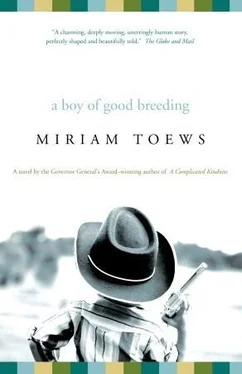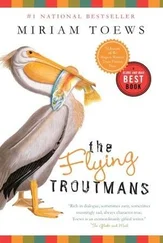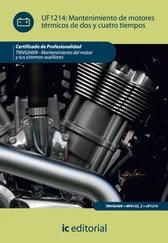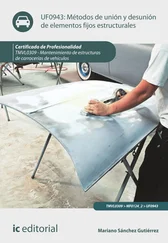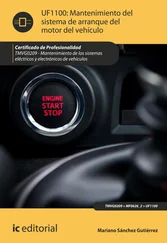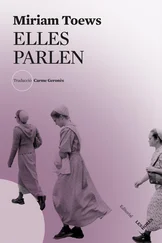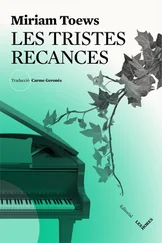“Yes, Knutie,” Dory said, “that’s true.”
But for now, Knute still had her job with Hosea, Dory was back at the labour pool and Max, they had decided, would look after S.F. at Tom and Dory’s place so that Tom would have some company while Dory and Knute were gone. Neither Max nor Tom was looking forward to spending their days together. When Dory had casually mentioned the plan to Tom, he spoke for the first time in days. He rolled over and said, “Preposterous. That boy has the constitution of an Oxo cube. Not to mention the resolve. Put him in a situation requiring responsibility and he’ll dissolve at once. He’s unfit to look after himself, let alone a child and an old man who happens to hate his guts.”
Dory had said, “Tom, Max is not a boy, the child is his own and they get along beautifully, and you are not an old man, although you’re acting like one. And, furthermore, since when do you use the expression to hate someone’s guts? Really, Tom. People change, people grow up. If you haven’t noticed, I’m not a big fan of Max’s, either, but right now he’s all we have, so get used to it.”
Or that’s how Dory told it, anyway. She was proud of her firm response to Tom’s indignation. She would have loved him to have gone on about it, to argue and rant, to jump up and down on the bed, to refuse to have Max in the house, to have said anything more at all, but he didn’t. He rolled over and didn’t say another word. When Knute told Max about the plan he responded, initially, with laughter. “Tom hates me,” he said.
“We all do, Max,” said Knute, “you’re a parasite.”
“I know, I know,” he said. “But, Knute, it’ll be pure hell, I have to take care of him? And Summer Feelin’?”
“Yes,” said Knute. “That’s correct.”
And now he had a broken leg, too. But that was the situation. Dory and Knute were confident they would manage somehow.
That morning, before Max showed up with his cast and crutches, Knute called Marilyn. She told her all about the night before and they had a good laugh. Then she told her all about Tom. “Are we young or old, do you think, Marilyn?” she asked.
“Oh, for fuck’s sake, Knutie,” said Marilyn. “We’re young, sort of. Young enough. Tell me what you said when S.F. asked if you can die from sadness.”
“I didn’t say anything,” said Knute. “I didn’t know what to say. If I had said ‘yes,’ she would have worried about Tom, and also would have felt she could never feel sad about something without risking her life.”
“So why didn’t you say ‘no,’ then?” asked Marilyn.
“I don’t know,” said Knute. “It wouldn’t have been the truth, really, I don’t think. To say ‘Of course you can’t die from sadness’ would be a terribly clinical thing to say, Marilyn. To say, ‘Well, technically, the heart stops beating, the brain stops sending signals, the internal organs shut down and that’s how a person dies. End of story,’ she’d grow up to be a cynic. I just think it’s more mysterious than that. I think you can die from sadness.”
“Well,” said Marilyn, “it’s like a passive form of suicide, just letting go, checking out. Though I still think it takes more than one botched response to your kid to turn her into a cynic.”
“Okay,” said Knute, “whatever. It’s not his fault. It’s not a lack of willpower.”
“I know,” said Marilyn. “Drugs might help Tom, but then again they might not.”
“They don’t,” said Knute. “They don’t seem to, anyway. And you know, this sadness … as far as I know, Tom’s had a happy life, except for his heart attack and now the mental lapses …”
“Well, that’s enough, isn’t it?” asked Marilyn. “Sometimes it’s just the fucking sadness in the world, from the beginning of time, and no end to it in sight that begins to eat away at some people. A lot of people, I think. But a lot of people do things about it, like drink too much, or work too hard, or sleep around too much …”
“Tom just floats on it,” said Knute, “and it takes him out to sea. He gets lost.”
“How do you get him back?” asked Marilyn.
“I don’t know …”
Knute had to go to work, and Marilyn had to answer the door so they said good-bye. Marilyn said it would be a while before they could all get together again because Josh had the chicken pox and she had met a nice guy who was fixing the street in front of her place, so maybe her social life would pick up. But they agreed to talk again soon.
Hosea stood at his window and watched as Knute watered the flowers along Main Street. Red and white petunias, thought Hosea. Yes, that will work. He watched Knute turn around and say hello to a young woman about her age. She was smiling and nodding her head vigorously. Then she pointed to the flowers and laughed. She looks so much like Tom, thought Hosea. She really does. For a second or two Hosea thought about his own child residing within Lorna’s womb and he wondered, would he or she look like him? He watched Knute say good-bye to the other woman and light up a cigarette. She smokes too much, he thought. She’ll end up having a heart attack like Tom. But then Hosea remembered that Tom had never smoked, except for a couple of cigarettes one summer night up on the dike when he was a kid, because Peej had forced him to. Actually Peej had tried to force Hosea to smoke the cigarettes, but Tom had told Peej that Hosea was asthmatic and could die if he inhaled. “Here,” Tom had said, “gimme those damn things, I’ll smoke ’em myself.”
Hosea opened his office window and wedged a fat felt-tipped marker under it to keep it up. He tried to make out the emblem on the front of Knute’s baseball cap. He thought it was the Brooklyn Dodgers. Tom’s cap, he thought. That’s Tom’s old cap.
Peej had always wanted to fight Hosea. He knew he would win and he knew Hosea wouldn’t tell Euphemia, and even if she found out she’d probably just shrug it off or make a joke. And Hosea had no father to defend him.
Hosea remembered watching the baseball game from the relative safety of the dike. He’d known Peej was there waiting for him. Hosea rode his bike around and around the dike. All the boys playing baseball could see him up on the dike and from time to time one of them would wave. Peej wasn’t going to go up there to fight Hosea because he wanted an audience. He wanted Hosea to come down to the field where all the boys were. Finally Tom couldn’t stand it any longer and he threw his baseball glove in the grass and walked over to where Peej stood. “C’mon, you stupid piece of shit, I’ll fight you.”
This made Peej laugh. “Go back to your little game, you jam tart, you’re not the girl I’m looking for.” Tom looked up at the dike. Hosea had stopped riding and stood straddling his bike, watching.
“C’mon,” said Tom, “you big chickenshit. Fight me. If I win, you leave Hosea alone. You never touch him, ever.”
Peej laughed. “Okay,” he said. “And if I win?” Tom flew at him. He didn’t have an answer for that question. He just knew he had to win.
Tom didn’t really know how to fight. He didn’t know how to punch and kick and ward off blows, hook and jab, all that stuff. In fact, he fought like a girl. He clawed P.J.’s face with his fingernails. He pulled P.J.’s hair until his head snapped back and his tongue stuck out and that’s when he bit half of it off and spit it back into P.J.’s face. And that’s when P.J. went down and the fight was over. Tom was sobbing and trembling and he fell to his knees beside P.J. who was bleeding into the dirt and whimpering like a newborn calf. Tom looked up and saw Hosea way off in the distance, riding his bike around the dike, and disappearing. He was free.
Читать дальше
